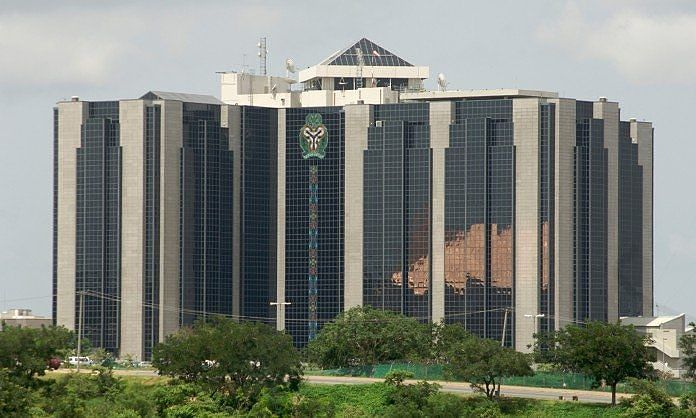Non-performing loans in the Nigerian banking system have over the years been consistently trending downwards. Before the birth of Assets Management Corporation of Nigeria (AMCON), non-performing loans (NPL) in the banking industry had in times past soared to more than 37 per cent before declining to 2.96 per cent by 2014. However as the Central Bank of Nigeria (CBN) began to harp on banks to increase lending NPLs began to rise.
NPLs rose from 4.86 per cent in 2015 to 12.82 and 14.81 per cent in 2016 and 2017. The NPL levels had soared to 16.21 per cent, but as it declined to 14.51 per cent, banks became more cautious in lending as many recalled their loan and were not giving out new loans. Many banks had resorted to making profit from government securities which is much less risky.
To ensure that the increased loan drive does not end up becoming the downfall of the banks or a return to the pre-AMCON era, bankers and regulators in the industry including the CBN had sought a way out. It was jointly agreed that individuals who seek to obtain new loans in the banking industry will now have to sign a new clause which states that in the case of default on the part of the debtor, the bank can take over all his or her deposits within the banking industry.
The clause, Global Standing Instruction (GSI) came into effect in August of 2020 but many bank customers are still unaware of it. The effectiveness of the GSI is helped by the Bank Verification Number (BVN) which ties together all the accounts of an individual across the Nigerian banking industry, be it microfinance bank, finance company, mortgage bank or investment bank.
The GSI is a mandate authorising recovery of past due obligations from any and all deposit accounts maintained by a defaulter. The GSI is limited to debt recovery only and is limited to only individual accounts. Although it can be used recovery of repayment amount, the GSI cannot be used to recover any additional fees, charges or penal rate for default.
To set up the mandate, customers will fill in their BVN, Credit Risk Management System (CRMS) number, the full repayment amount, the loan duration and the repayment account. The GSI is being maintained by NIBSS which is the custodian of BVN and holds records of all bank accounts in the country.
Once a debtor defaults on a loan, the GSI is triggered with the creditor bank activating the mandate on GSI Module specifying the recovery amount. Once triggered, the available accounts for recovery are identified, available balances for the accounts are retrieved and funds from the accounts according to Recover Logic are recovered.
According to the guideline, the GSI will serve as a last resort by a creditor bank and participating financial institutions must honor all transactions from NIBSS with a valid GSI Mandate code. The GSI Transactions can be triggered upon default on repayment, seven days after scheduled repayment date or before application of penal rates.
Once the GSI is triggered, the creditor bank is enabled to recover the loan for any account which the debtor holds in other banks including savings account, current account, domiciliary accounts, investment deposit accounts either in local or foreign currency, electronic wallets as well as joint accounts.
However the GSI Trigger Amount can only be for outstanding principal amount and accrued interest on the loan excluding any Penal Charges. To ensure that banks or participating financial institutions do not shield accounts from the GSI or customers erroneously debited, the guideline had instituted penalties for any infraction.
One of such is that in addition to a fine of N100,000 any financial institution that Where a PFI fails to grant the GSI permission to debit an eligible account, “the erring PFI shall pay a fine equivalent of the balance in the account shielded from the GSI’s Debit Request, regardless of the GSI Trigger Amount.
“For each incident, the Chief Information/Technology Officer (CIO/CTO) of the erring PFI shall submit a formal explanation letter to the Director Banking Supervision and Director Financial Policy and Regulation Department.”
Over the years, the implementation of the GSI has given room for more confidence by financial institutions to lend as non-performing loans (NPLs) have sustained a decline further below the regulatory benchmark of five per cent to 4.2 per cent at the end of December 2022.
This decline furtherance from 4.9 per cent recorded in September 2022 was highlighted by of the members of the Monetary Policy Committee (MPC) deputy governor, Economic Policy at the CBN, Dr. Kingsley Obiora, while noting that the banking system remains sound, safe, and resilient said, “Industry Non- performing Loans decreased from 4.9 per cent in December 2021 to 4.2 per cent in December 2022, which was below the maximum prudential requirement of 5.0 per cent.
“The decline in NPLs was attributable to write-offs, restructuring of facilities, Global Standing Instruction (GSI) and sound credit risk management by banks.” The declining NPL is despite a rising assets in the banking industry which grew by N14.36 trillion or 24.24 per cent from N59.24 trillion in December 2021 to N73.59 trillion in December 2022, driven by balances with CBN/banks, investments, and credit expansion to the real sector.
Total gross credit increased by N5.14 trillion or 20.93 per cent between the end of December 2021 and December 2022, from N24.57 trillion to N29.72 trillion, due to the increase in the industry funding base as well as the CBN’s directive on LDR, which has encouraged banks to increase lending to the real sector of the economy, and business strategy and competition.
“The increase in credit to the key sectors of the economy is expected to bolster aggregate demand and promote economic growth, job creation, and poverty alleviation,” Obiora stated.





